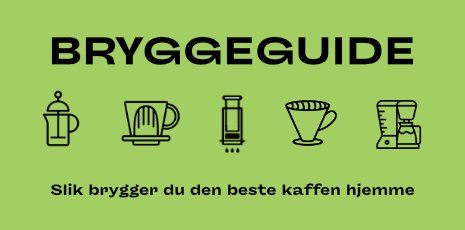Gahahe Honey - Burundi
COUNTRY: Burundi
FARM/COOP/STATION: Gahahe washing station
VARIETIES: Red Bourbon
PROCESSING: Honey
ALTITUDE: 1800 masl
OWNER: 1,740 smallholder farmers working with Greenco Coffee
SUBREGION/TOWN: Gahahe
REGION: Kayanza
FARM SIZE: 230 trees on average
HARVEST MONTHS:March - July
FLAVOUR PROFILE: citrusy aroma with notes of berries and black tea.
ABOUT THIS COFFEE
Gahahe washing station is located in Kayanza province. The washing station lies at 1,805 meters above sea level. It's equipped with 10 fermentation tanks, 4 cherry selection tables, 2 soaking tanks and a drying field with 180 drying tables and 18 pre-drying tables. The station can process up to 750 metric tons of cherry per season.
The washing station participates in a number of farmer outreach and support projects including a livestock rearing project and a range of Farmer Hub projects centered on strengthening cooperatives and improving yields.
CULTIVATION:
Many trees in Burundi are Red Bourbon. Because of the increasingly small size of coffee plantings, aging rootstock is a very big issue in Burundi. Many farmers have trees that are over 50 years old, but with small plots to farm, it is difficult to justify taking trees entirely out of production for the 3 to 4 years it will take new plantings to begin to yield. In order to encourage farmers to renovate their plantings, Greenco purchases seeds from the Institut des Sciences Agronomiques du Burundi (ISABU), establishes nurseries and sells the seedlings to farmers at or below cost. At the washing station, farmers can also get organic fertilizer derived from composted coffee pulp.
Despite the ubiquity of coffee growing in Burundi, each smallholder produces a relatively small harvest. The average smallholder has approximately 250 trees, normally in their backyards. Each tree yields an average of 1.5 kilos of cherry so the average producer sells about 200 to 300 kilos of cherry annually.
HARVEST AND POST-HARVEST:
During the harvest season, all coffee is selectively handpicked. Most families only have 200 to 250 trees, and harvesting is done almost entirely by the family.
Of course, quality is the key to this system, and quality assurance begins as soon as farmers deliver their cherry. Cherry is processed under constant supervision. The pulping, fermentation time, washing, grading and a final soaking are all closely monitored. Upon delivery all cherry is floated in small buckets as a first step to check quality. After floating, the higher quality cherry is sorted again by hand to remove all damaged, underripe and overripe cherries.
After sorting, cherry is pulped within 6 hours of delivery. During pulping, cherry is separated into high- and low-grade by density on a Mackinon 3-disc pulper outfitted with an additional separation disk.
The coffee and remaining mucilage is then transported to the drying tables where they will dry slowly for 2 to 3 weeks, during which time parchment is repeatedly sorted and raked to ensure even drying. The coffee is left to dry from sunrise to sunset and is covered with a sheet during the evening or when it rains. The moisture level is carefully monitored and any parchment with visual defects is removed.
QUALITY CONTROL
Washing stations make the first payment to farmers between 15 and 30 June. The second payment comes later in the summer. If the coffee wins a competition or sells for extremely high specialty prices, Greenco gives another payment approximately a year after the harvest season.
Once dry, the parchment is bagged and taken to the warehouse. Greenco’s team of expert cuppers assess every lot (which remain separated by station, day and quality) at the lab. This level of traceability is maintained throughout the entire process.
Before shipment, coffee is sent to Budeca, Burundi’s largest dry mill. The coffee is milled and hand sorted by a team of hand-pickers who look closely at every single bean to ensure zero defects. It takes a team of two hand-pickers a full day to look over a single bag. UV lighting is also used on the beans and any bean that glows (which is usually an indication of a defect) is removed. The mill produces an average of 300 containers of 320 bags per year.
Budeca is located in Burundi’s new capital city, Gitega. The city has a population of around 30,000 people. Since there are approximately 3,000 people working at the mill, mostly as hand pickers, this means that Budeca employs nearly 10% of the total population in Gitega for at least half the year (during the milling season). The same is true in the provinces of Ngozi and Kayanza, where Greenco and Bugestal are the first employers in the region during the coffee harvest season. This has an incalculable impact on a country like Burundi, which has unemployment rates above 50%, especially in rural areas and among young people.
COFFEE IN BURUNDI
Burundi has long been overlooked in comparison to its neighboring East African specialty coffee producing powerhouses. The country’s coffee is produced almost entirely by smallholder farmers, and much of this small-scale production is of exceptional quality. With its super sweet, clean and often floral coffees, Burundi, every year, is increasingly is putting itself on the specialty coffee map.
Coffee is of paramount importance to families and the country at large. Considering this, improving and expanding coffee infrastructure is not just a way to improve incomes, it is a way to revolutionize the earning potential of an entire nation.
Building washing stations and expanding agricultural extension work can be great ways to improve coffee quality. Washing stations are pivotal in improving cup profile standards and the global reputation of Burundian coffee.
Both state-owned and private actors drive Burundi’s coffee industry and play key roles as washing station management companies and exporters. State-owned companies are called Sogestals, short for “Sociétés de Gestions des Stations de Lavage” (Washing station management companies). Privately-owned companies can operate under a variety of different names.












